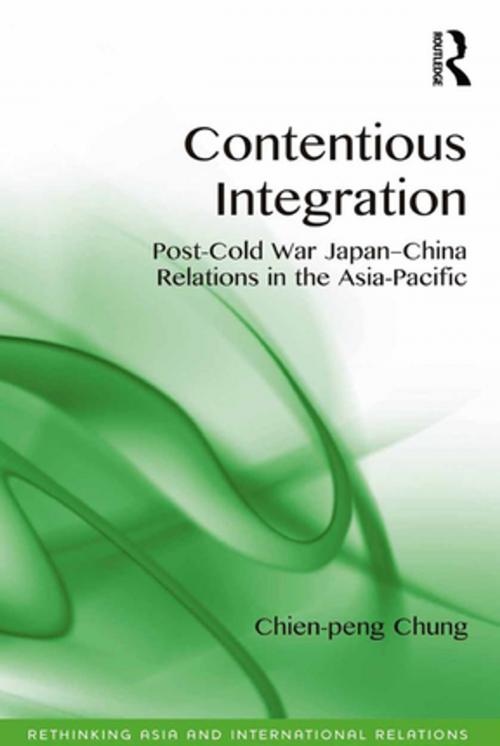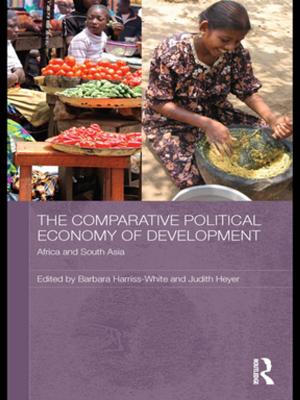Contentious Integration
Post-Cold War Japan-China Relations in the Asia-Pacific
Nonfiction, Social & Cultural Studies, Political Science, International, International Relations| Author: | Chien-peng Chung | ISBN: | 9781317160441 |
| Publisher: | Taylor and Francis | Publication: | May 13, 2016 |
| Imprint: | Routledge | Language: | English |
| Author: | Chien-peng Chung |
| ISBN: | 9781317160441 |
| Publisher: | Taylor and Francis |
| Publication: | May 13, 2016 |
| Imprint: | Routledge |
| Language: | English |
The Asian-Pacific is now one of the most important regions in the global system, where the interplay of integrative economic, geo-political and sociocultural processes provide increasing scope for regional leadership to be exercised, particularly by China and Japan. This book studies the relationship between the People's Republic of China and Japan as the basis of the construction and maintenance of economic and security arrangements in this region. It explains how these arrangements have been challenged by the occasionally testy ties between these two major Asian powers and explores their dynamic interactions in promoting their own agenda and ambitions, and obstructing that of the other's in contending for leadership of East Asia. In so doing, it highlights the complex interdependence and competitiveness of China and Japan, with careful observation from the United States. This book provides practical guidance for foreign policymaking in China, Japan and the United States, and makes theoretical inferences for the study of Sino-Japanese relations, regional integration and international relations generally.
The Asian-Pacific is now one of the most important regions in the global system, where the interplay of integrative economic, geo-political and sociocultural processes provide increasing scope for regional leadership to be exercised, particularly by China and Japan. This book studies the relationship between the People's Republic of China and Japan as the basis of the construction and maintenance of economic and security arrangements in this region. It explains how these arrangements have been challenged by the occasionally testy ties between these two major Asian powers and explores their dynamic interactions in promoting their own agenda and ambitions, and obstructing that of the other's in contending for leadership of East Asia. In so doing, it highlights the complex interdependence and competitiveness of China and Japan, with careful observation from the United States. This book provides practical guidance for foreign policymaking in China, Japan and the United States, and makes theoretical inferences for the study of Sino-Japanese relations, regional integration and international relations generally.















